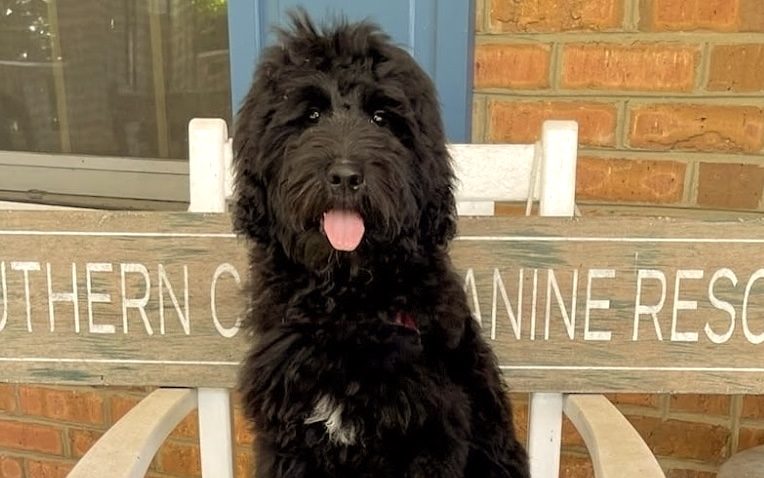It’s been about three months since NJIT community members saw a survey with the most burning question: what should be the name of the Therapy K9 Officer joining the Department of Public Safety?
The idea of bringing a therapy dog on the team was raised for discussion years ago. “I don’t think that it’s something that was really popular in policing, or even accepted in policing,” Chief of Police Kevin Kesselman mentioned, “so it was kind of pushed away.”
“A lot of the canines were still dogs sniffing for drugs, but with everything that has happened to the general public [since the COVID-19 pandemic], we saw a major decline in social and mental health,” Canine Handler Officer Kevin Berge explained. Adding therapy canines to a college’s public safety department is a practice mostly prevalent on the West Coast, making NJIT one of the few universities in New Jersey to add one.
Berge had sought a program through which they could undergo the process of training and adding a dog to the unit at minimal costs, so it was no question to commit to the plans. “For under $1,000, we could bring a dog to this community that is trained at a three-month academy — by a Florida Sheriff’s Department specifically designed to teach this dog how to be a wellness and therapy dog that we could share with our community,” Kesselman added.
As of now, there are plans for the canine to work with the university’s Center for Counseling and Psychological Services in group therapy sessions. Berge also aims to bring her to Campus Center during general stressful times like midterm and final seasons to let people walk up to her and feel relaxed amidst the academic chaos.
The department will keep its social media up to date with events NJIT community members can attend, which can include activities like eating snacks and taking a break with the therapy dog. Departments across campus will also be able to request her if individuals need to take a breather and spend time with the dog for a few hours.
“She will put you in a better mood,” Berge noted. “[The interaction with her] will put you in a different scenario, different state of mind, and you will completely calm down in stressful situations.”
Kesselman said that this could be especially beneficial for those going through severe mental health emergencies; while waiting for Emergency Medical Services to come, having that dog stay with them can be very effective.
“Policing shouldn’t be about we’re forcing you to do things we want; we want those specifically suffering from those events to be able to say, ‘This was a very common and relaxing situation to get me the help that I needed,’” he said.
The officers also mentioned that they specifically chose a hypoallergenic canine so that even people allergic to dog dander would be able to enjoy her presence.
Berge is going to be responsible for the canine 24/7 — that includes caretaking and bringing the canine to someone during an emergency at any time of day. She’s still growing, turning about seven months old when she comes back from the training.
As for the burning question, in the week-long timeframe, 1,079 responses flooded the survey that had nine choices of names: Elle, Sadie, Faith, Coco, Lily, Landy, Ebby, Willow, and Jersey. “We were all in arguments about the dog’s name,” Kesselman said. “[Berge] was panicking because he’s gonna be the handler, and he didn’t like some of the names that were on there.”
There was a close call between the top two voted names, Coco and Jersey — with a difference of just 3% of voters. It turned out that NJIT is introducing a therapy canine whose name is a core part of the university from the beginning: the department welcomes Therapy K9 Officer Jersey to campus in just a few weeks!




























